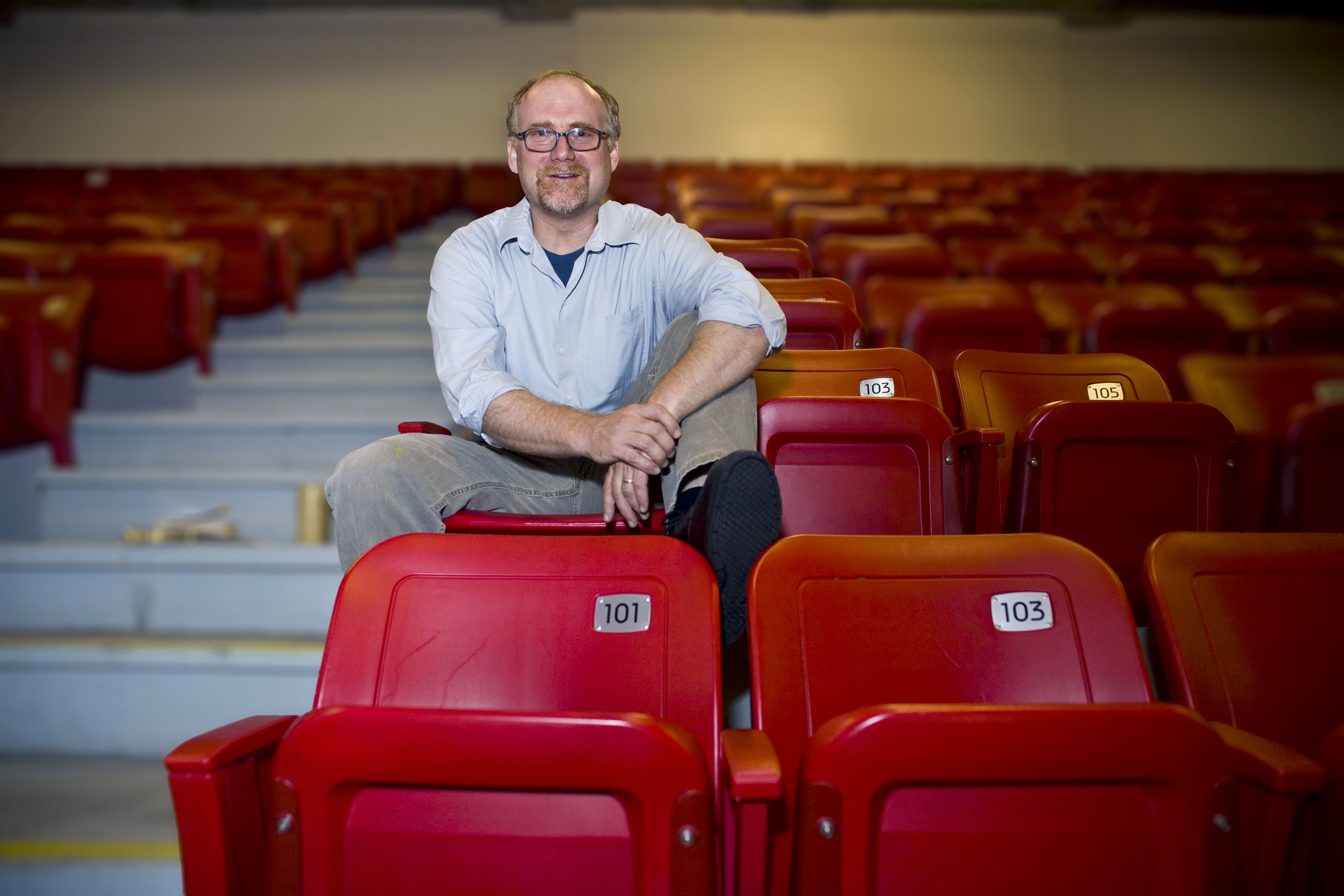Todd Pickett listens to Radiohead. He’s also a Talking Heads fan. Todd Pickett’s favorite Wes Anderson film is “Rushmore,” he legitimately loves Russian lit, and actually understands it. Officially (and unofficially), Pickett is not the new Ron Hafer, but he is the new face of chapel.
In lieu of Hafer’s retirement, Biola no longer has a university chaplain. Chapel’s leadership organization has been restructured, and Pickett undertakes the position of associate dean of spiritual development. He oversees chapel and soaks up some of the former chaplain’s duties.
For the last three years, Pickett was the dean of humanities and social sciences at Biola. In the nine years prior, he was a professor and chairman in the English department, so his ascension into this new title may seem rather odd. However, he is quick to state just how fluid the transition really was.
“While it may seem unusual and abrupt for a professor of English to assume this position, in my own journey, it actually is more seamless and more like coming home,” he said. “I have always been back and forth through the university and the church … Then to see a position come up that was really a pastoral position in a university, I thought that would be ideal.”
Pickett has a way of striking students as staunchly serious, but it doesn’t take long before he proves how down to earth and accessible he is. Conversations with him are always witty (at least one side of them), his personality is inviting and he makes people laugh. He also happens to be really smart.
After receiving his B.A. from Stanford University, an M.A. from Trinity College Dublin, and a Ph.D from UCI, Pickett is now working on an M.A. in spiritual formation at Talbot. But Pickett’s impressive scholastic resume is not what defines him; he is a family guy, too. He has two daughters, Carley and Abbey, and is married to Dottie, who works as a marriage and family therapist.
As a professor, Pickett stressed the need for community and vulnerability. His class structure was discussion driven, and students were continually encouraged to get to know themselves on a deeper level. Pickett plans to continue teaching one class a semester, but his community mindset will also be influencing a wider range of students – in chapel.
Pickett plans to implement small changes to chapel structure as his first year as associate dean progresses. There will be more series driven chapels and an emphasis put on making time for spiritual rest and meditation.
“One of the things I’ve been hearing over and over is students are over-messaged,” said Pickett. “In every way, [this] generation is the most marketed to, sold to … you just get a lot of messages. I hear from students that they need more time for processing and reflection. They feel overwhelmed sometimes by the amount of information that comes at them. That makes sense to me, [and] at the very least, we need to allow a little time and a little room to listen to what God is doing. [We need to] take some of the things we hear and talk to God about them. I am trying to build that into the rhythm of chapel.”
Thus far this semester, the mind-set shift in chapel is evident. Pickett seeks vulnerability when he urges students to open up their hearts before God at the beginning and end of each chapel, allowing time for stillness and reflection.
“I want to give us some space to be aware of what’s going on in our heart,” he said. “Chapel itself can model in its rhythm what really is necessary in the Christian life: a little time and a little space.”
But Pickett stresses that chapel will not drastically change. The structure will be much the same, and students will still receive the types of messages from the kind of people they are used to seeing in the pulpit.
“I am very happy to step in and come in, take over what’s working very well, and begin asking, ‘What can we do better?’” Pickett said. “It’s a deepening and a cultivating of the good things that are happening.”
As we enter a new century, surrounded by change, Pickett can represent the positive direction in which Biola heads. Building upon a blessed century, Biola moves into its next hundred years with new leaders, but the same goal. And there is no question that these fresh faces, like Pickett, will strive to do the same as the old: enrich and inspire this campus and its students to live passionate, fruitful and God-honoring lives, all for the glory of Christ Jesus.
“You never want to frame your ideas,” said Pickett. “We are always opening to what God is calling us to do – that’s just the nature of Christian life, and that should be the nature of a Christian institution.”







